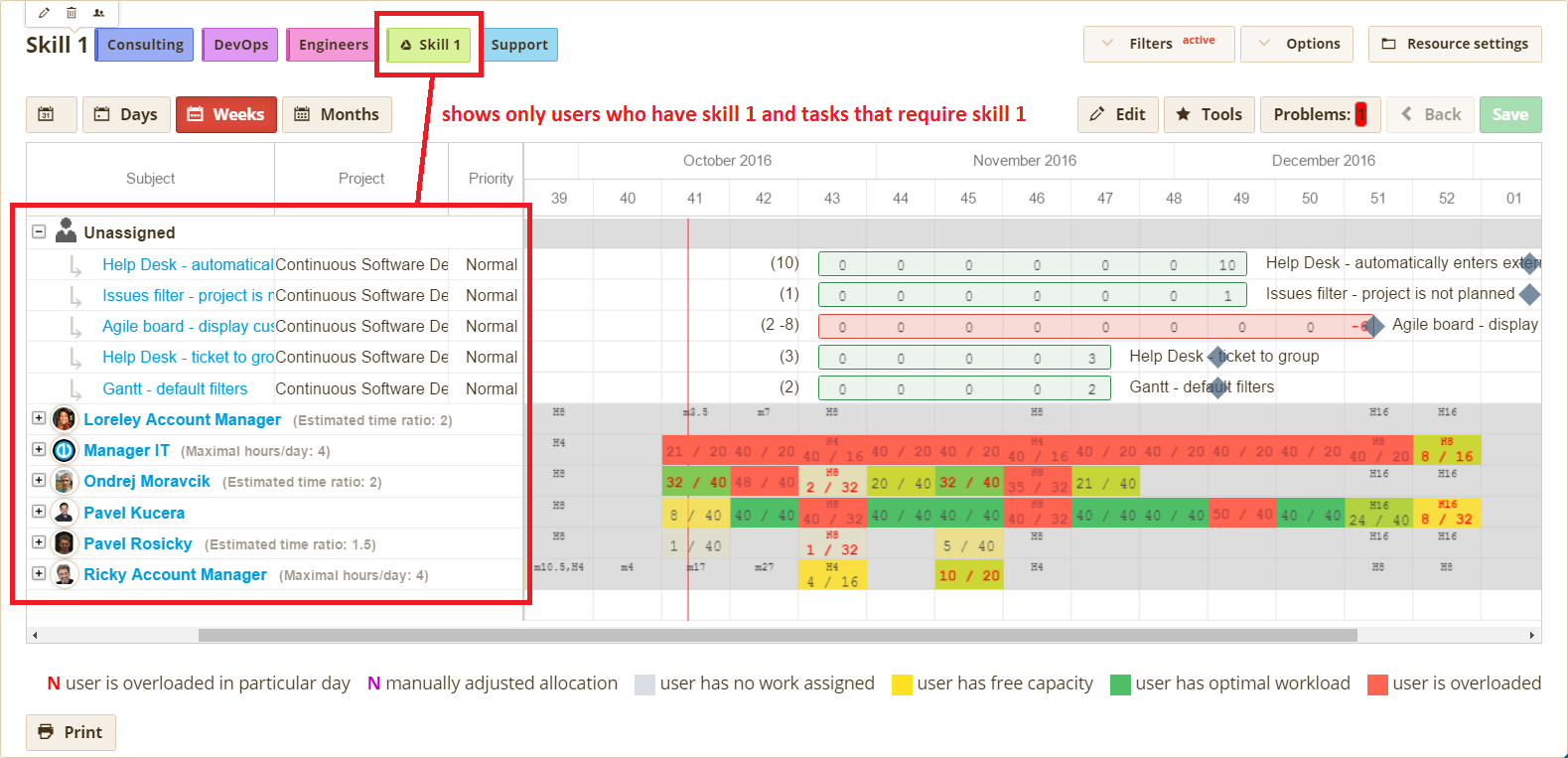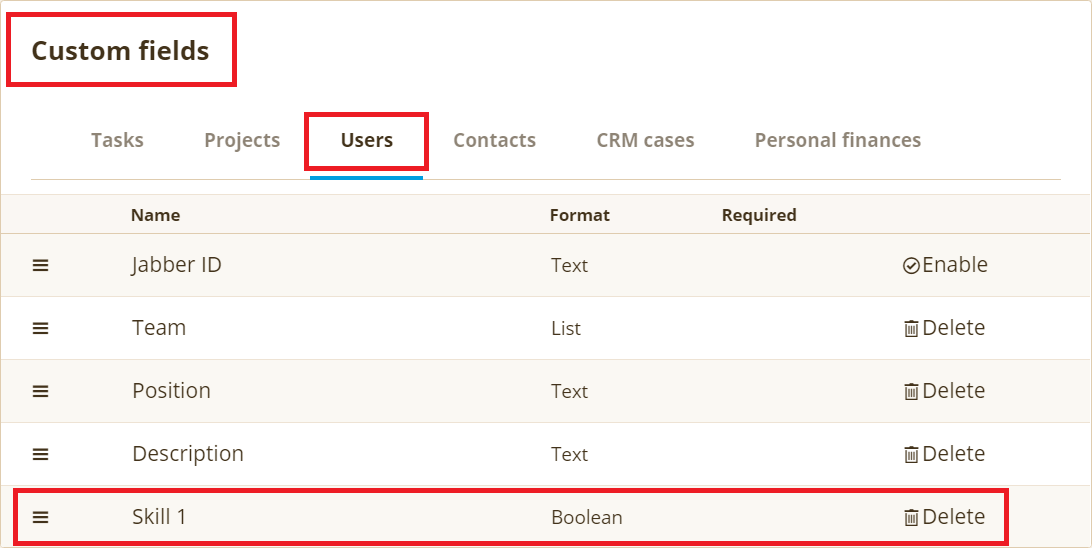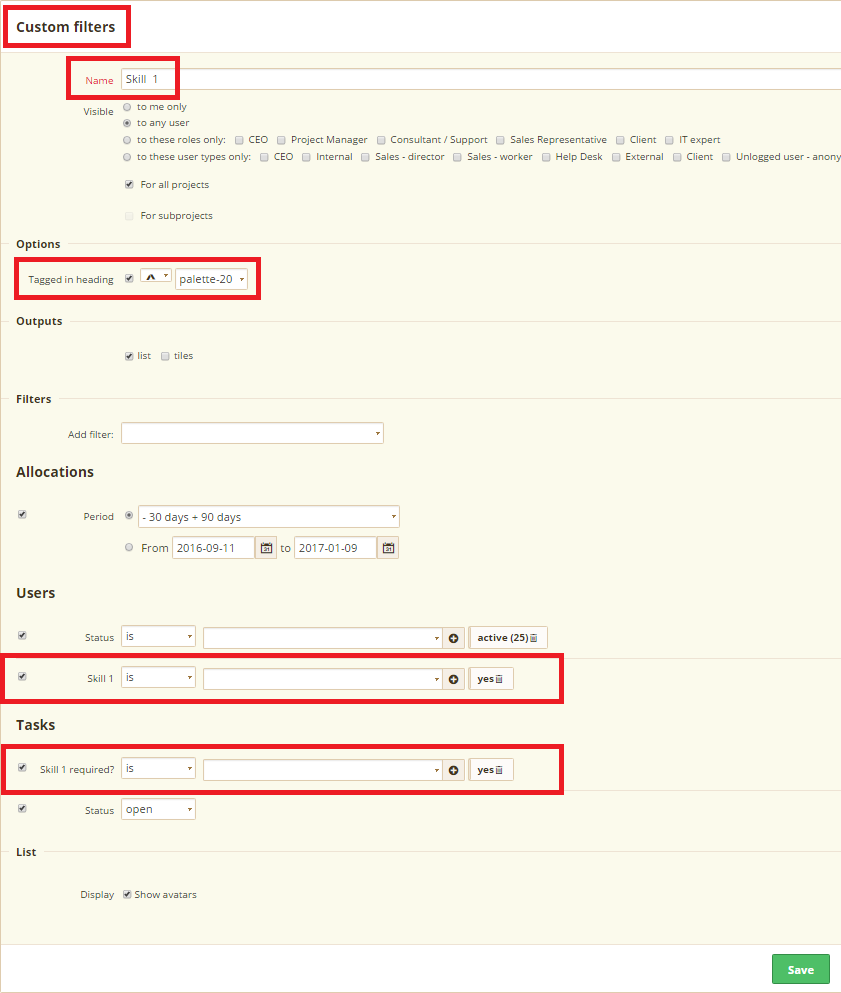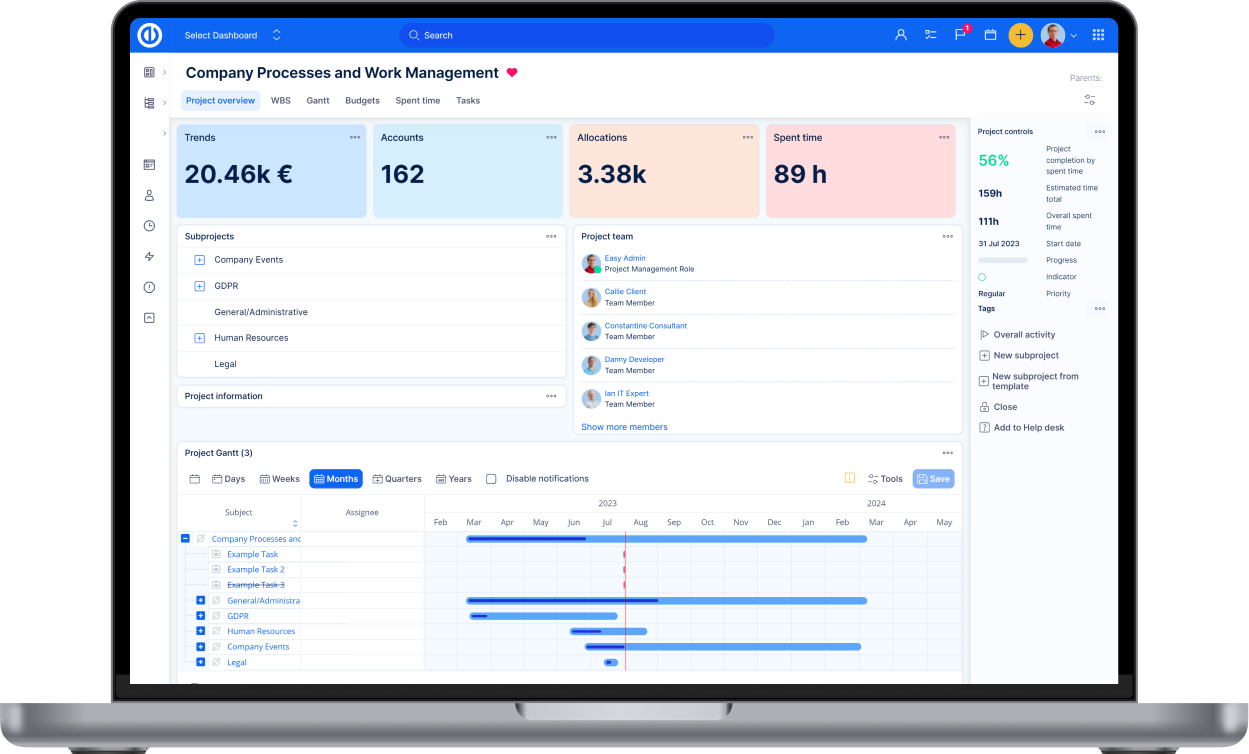How to Handle Skills Management in Redmine Resource Management
If you already have a resource management tool in your Redmine, you do not need a separate skills management tool. Do not you believe? Here is evidence.
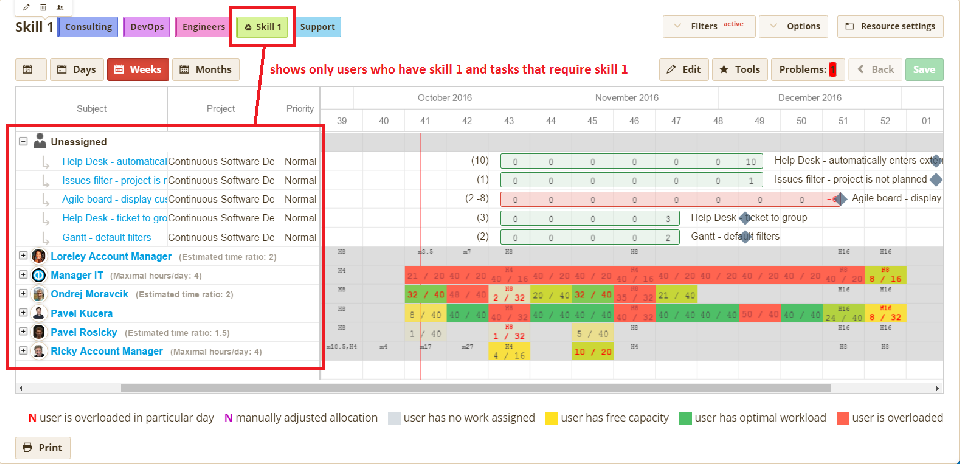
Skills management refers to a way of understanding, developing and expanding human resources and their skills.
Proper skills management in an organization gives you the ability to identify the skills required by different job tasks, to know the skills of the individual workers, and any gap between these two aspects.
Easy Redmine skills management
Key benefits of Redmine skills management
- Identify the skills required for different work tasks
- Overview of the skills of individual workers
- Identify tasks requiring a certain skill
- An overview of the missing skills to be acquired by HR
- Building a skills management strategy
Although Easy Project does not natively include skills management plugin, you still have the ability to work with Resource Management the way as if it did. How?
It's a pretty simple but very useful thing. First, create your own custom field and name it as per the required skill, such as programming or debugging.
Easy Redmine skills management
In our example, we have named this "Skill 1" field and set it as the "boolean" type so it can have only two values: yes or no (= user has/has not this skill).
If you need to distinguish skill levels, such as beginner, advanced, and expert, then "list" type will suit you better because it can contain an unlimited number of values instead of the two only.
In the second step, create another custom field on the task entity to indicate which tasks require this specific skill. For example, name it "Required Skill 1"? and set again the "boolean" type with selectable yes or no values.
Next, you must create and save a custom filter in the Resource Management module, which will only show users with skill 1 and tasks requiring skill 1, as shown in the first picture.
Easy Redmine skills management
Now, the filter is created. We recommend selecting "Tagged in heading" in the filter settings to make it easily accessible directly from the global level of resource management. Then just click on this label in the header and immediately see a list of users having skill 1 as well as tasks requiring skill 1.
It's so easy. In this way, you get a perfect Redmine skill management tool ready for immediate use at any time.
